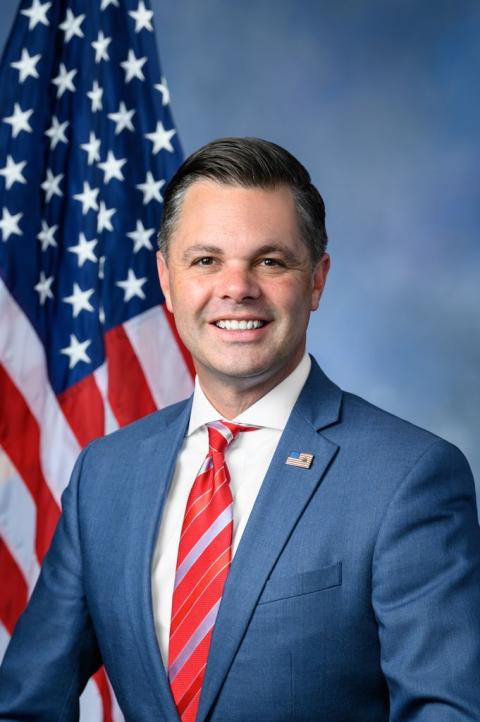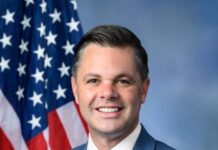U.S. Representatives Zach Nunn (IA-03) and Dina Titus (NV-01) introduced bipartisan legislation on Friday to address the nursing shortage impacting healthcare nationwide. The Train More Nurses Act requires the U.S. Department of Health and Human Services to develop a plan to increase capacity at nursing schools.
“The nationwide shortage of nurses is hurting Iowa families’ ability to get the care they need,” said Rep. Nunn. “We urgently need to improve the nursing pipeline, and that starts with addressing the need for more nursing faculty, especially in rural and underserved communities.”
In 2020, the State of Iowa released its Nursing Demand Survey and found that nearly 70 percent of medical facilities were struggling to fill open nursing positions due to a shortage of qualified job applicants. The problem stems in part from the fact that nursing schools are limited in the number of students they can take on to help grow the workforce due to a shortage of nursing school faculty. In 2021, U.S. nursing schools had to turn away nearly 100,000 qualified applicants due to a lack of teachers.
“As the demand for quality healthcare across the state continues, Nevada faces a shortage of 4,000 nurses,” said Rep. Titus. “The Train More Nurses Act is a critical step toward ensuring we can leverage tools to meet this demand and provide the necessary support at the federal level for our healthcare workers. By enhancing career pathways, addressing shortages in underserved areas, and facilitating the transition from LPNs to RNs, we are taking important strides towards bolstering our healthcare workforce and meeting the needs of patients.”
“We are facing acute and long-standing workforce challenges in healthcare, and so it’s imperative that we find ways to grow our workforce, especially in underserved areas of Iowa,” said Aaron Todd, Chief Executive Officer of the Iowa Primary Care Association. “Nurses are essential members to our healthcare teams and helping Iowans reach their health potential. We are grateful to Representative Nunn for his work to identify solutions to pressing workforce needs.”
“Nursing homes nationwide, including those in Iowa, are grappling with severe staffing shortages, worsened by the pandemic,” said Brent Willett, President and CEO of the Iowa Health Care Association. “In Iowa, nursing homes have experienced a 10% workforce reduction since 2020. The impending retirements of experienced registered nurses (RNs) and insufficient nursing program enrollment compound this issue, with over 50% of RNs over 50 years old and meager 1.2% annual RN growth predicted in Iowa. Additionally, RN program graduation rates in Iowa have decreased by 1.5% over a decade. Amid these challenges, a proposed federal staffing mandate from the Biden Administration is not in contact with reality and fails seniors across the country, who will see their access to long-term care severely limited if enacted. The Iowa Health Care Association genuinely appreciates Congressman Nunn’s support in protecting access for our state’s most vulnerable citizens.”
The bipartisan Train More Nurses Act will help address the nursing workforce shortage by requiring the U.S. Department of Health and Human Services to develop a plan utilizing grant programs to address the nursing faculty shortage, which will in turn help train more nurses to fill critical healthcare positions.
A companion bill was introduced in the U.S. Senate by U.S. Senators Jacky Rosen (NV), Susan Collins (ME), and Mike Braun (IN). Text of the bill can be found here.











